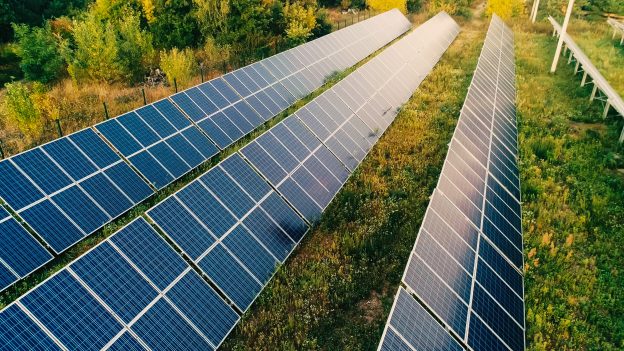Recently, ahead of a national referendum, a debate for nuclear power and renewable energy was broadcasted in Taiwan. One of the initiators of the referendum said that the toxicity of a PV panel's coating is bad for the environment. An officer from the Ministry of Economic Affairs defended the government's stance by explaining that a solar power system is not hurting the environment and eco-system at all throughout the lifecycle of module manufacturing, system installation, and regular maintenance and cleaning. According to the officer, the integration of green energy and eco-system is actually beneficial to Taiwan's environment.
Solar PV modules mainly consist of PV cells. The primary material of solar cell is silicon which is not toxic for the environment. A solar system's outer layer is tightly encapsulated by glass and aluminum frame. The system does not dissolve itself or release solvents to cause pollution.
Environmentalists questioned whether the installation of solar power panels over reservoirs will pollute the water. In a floating solar farm, the solar panel system's floats are the only parts that contact the water directly. These floats are made of high-density polyethylene (HDPE) that is resistant to strong acids and alkalis and does not release organic solvents at room temperature. No coating materials will be washed out by rainwater.
For worldwide examples, there are cases in Japan, South Korea, Britain and Taiwan. None of them showed water pollution caused by a PV system.
Regarding system maintenance, a solar PV system is typically set up in a tilting angle, so that on the surface of the solar panel, dust, bird feces, tree leaves, or spider webs can be rinsed off by rainwater. The rumor that PV panel requires chemical cleaning agents is not correct. Because the outer layer of PV panel is made up of glass, it only needs a high-pressure water spray or a mop to clean up. Therefore, cleaning up solar panels will not cause harm to the environment.
Kuo Hsuan-fu, head of the PV Generation System Association of R.O.C. (PVGSA), expressed that there are more than 16 billion solar PV modules worldwide, in more than 200 countries. No cases of toxic solar modules have been reported. HDPE is not only used in floating solar farms, but also in the floats of harbors. In particular, the California government in the US uses 96 million PE balls in their dam, in order to cover light from the dam and prevent water from vaporizing. This example shows that PE is not hazardous to the water reservoirs.
Chen Kun-hung, a Taiwan Photovoltaic Industry Association official, pointed out that when a solar farm powers the local grid, it does not generate any waste gas, waste water, or radiation to the environment. Solar energy provides the least impact on the Earth.
Lee Chun-li, deputy head of the Ministry of Economic Affairs' Bureau of Energy (BOE of MOEA), emphasized that activists should not mislead the public. Across the globe, PV systems have been passionately set up and local environments have been protected.
(Photo credit: Ministry of Economic Affairs' Bureau of Energy)







